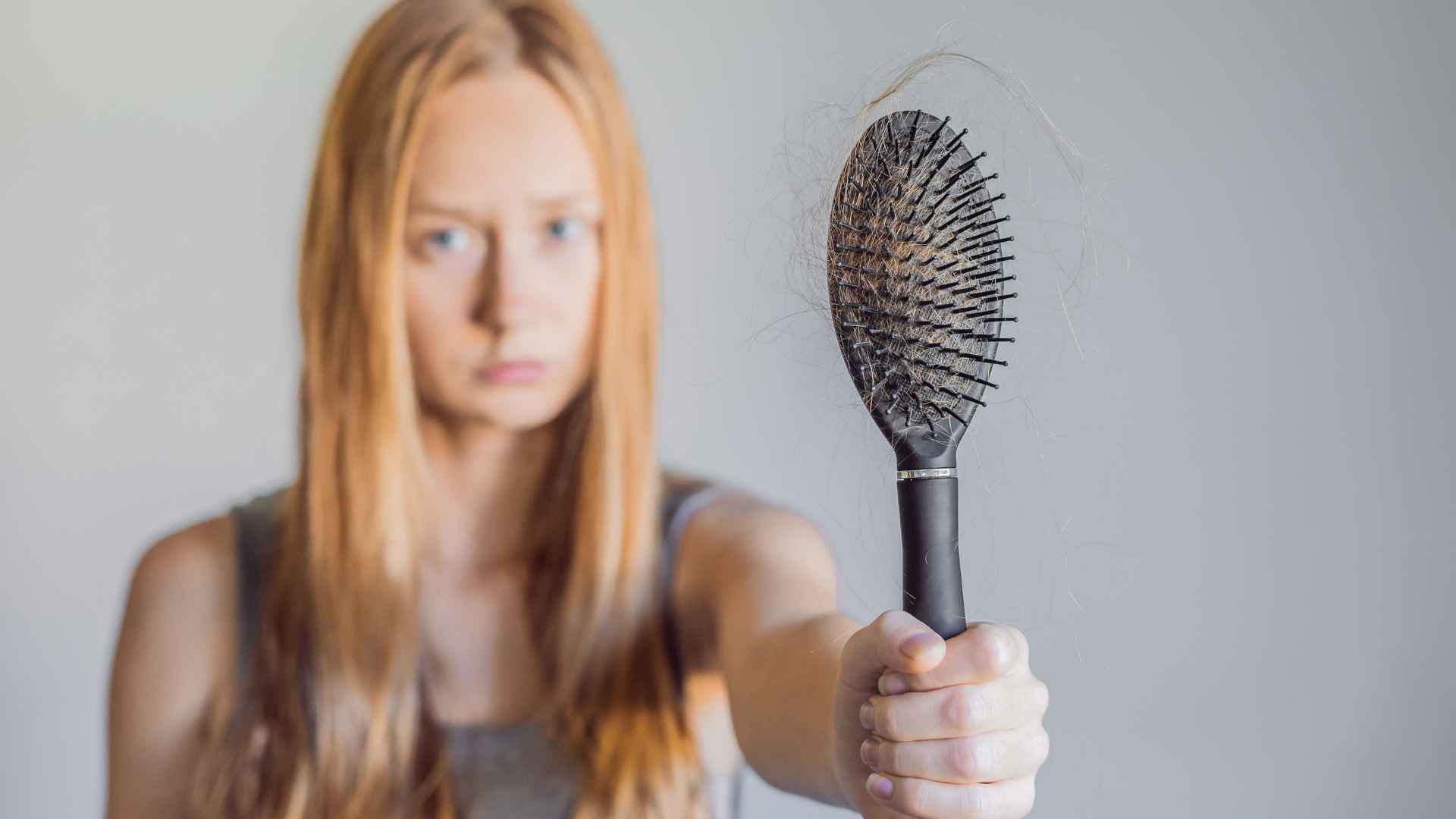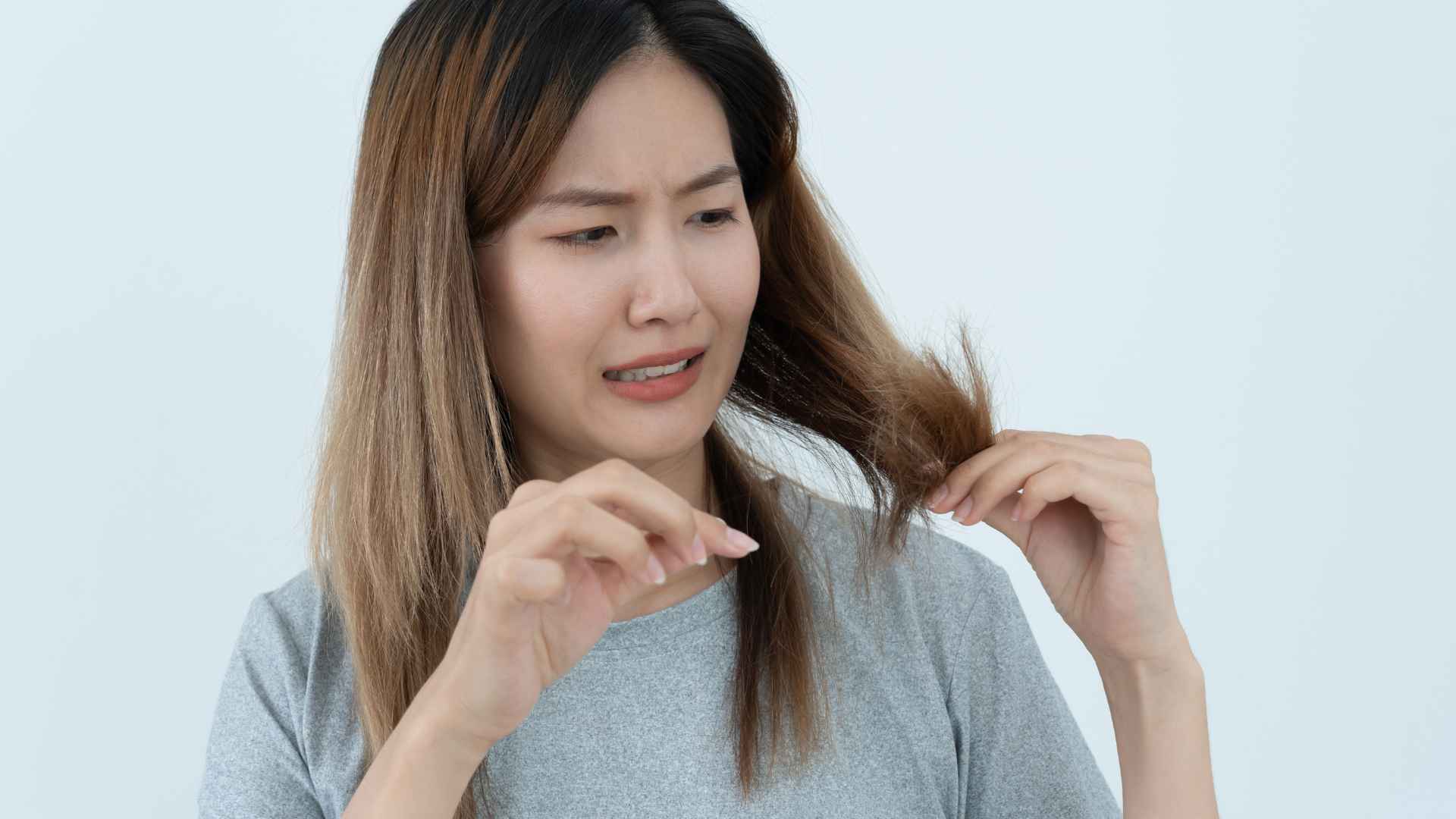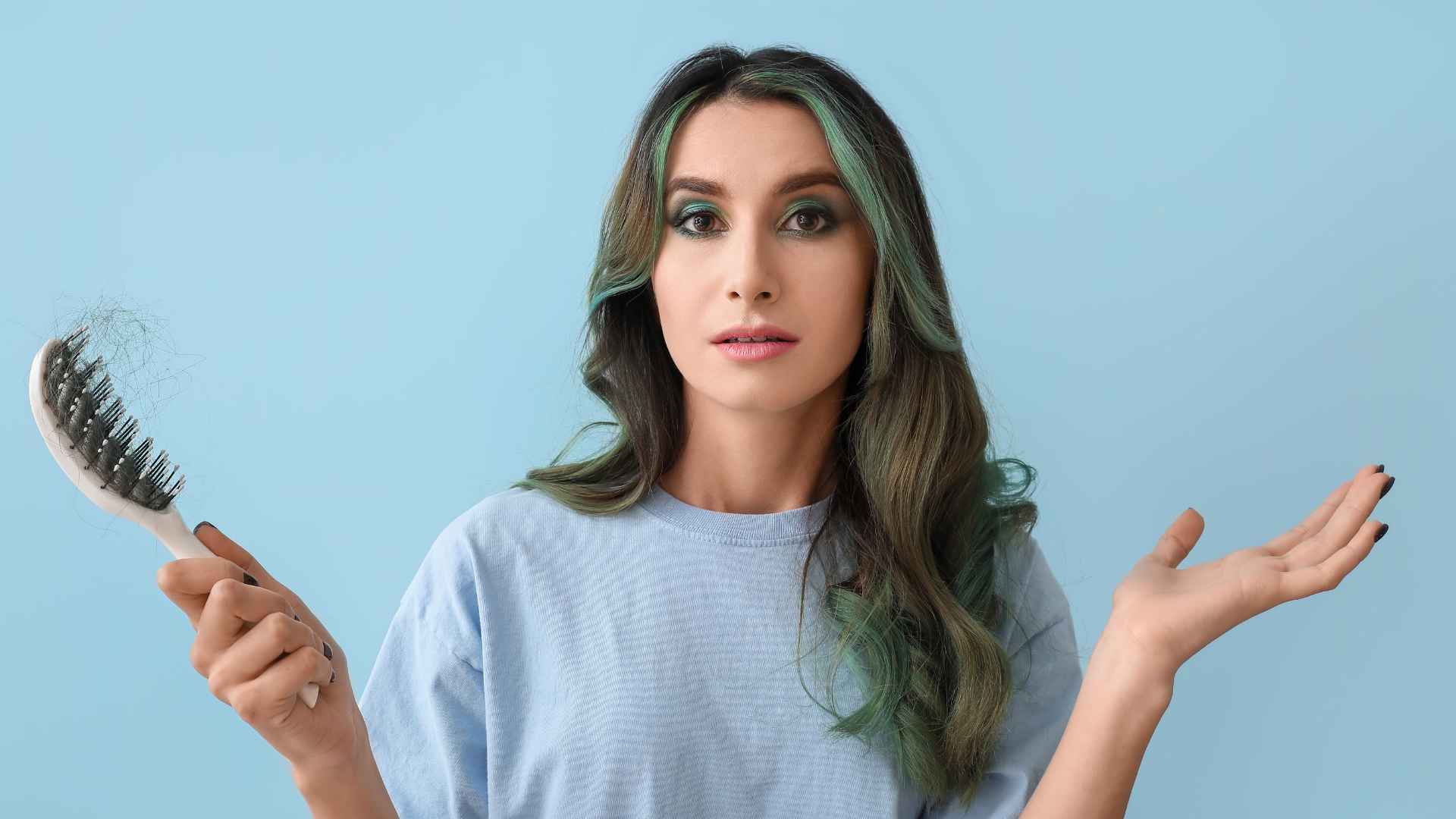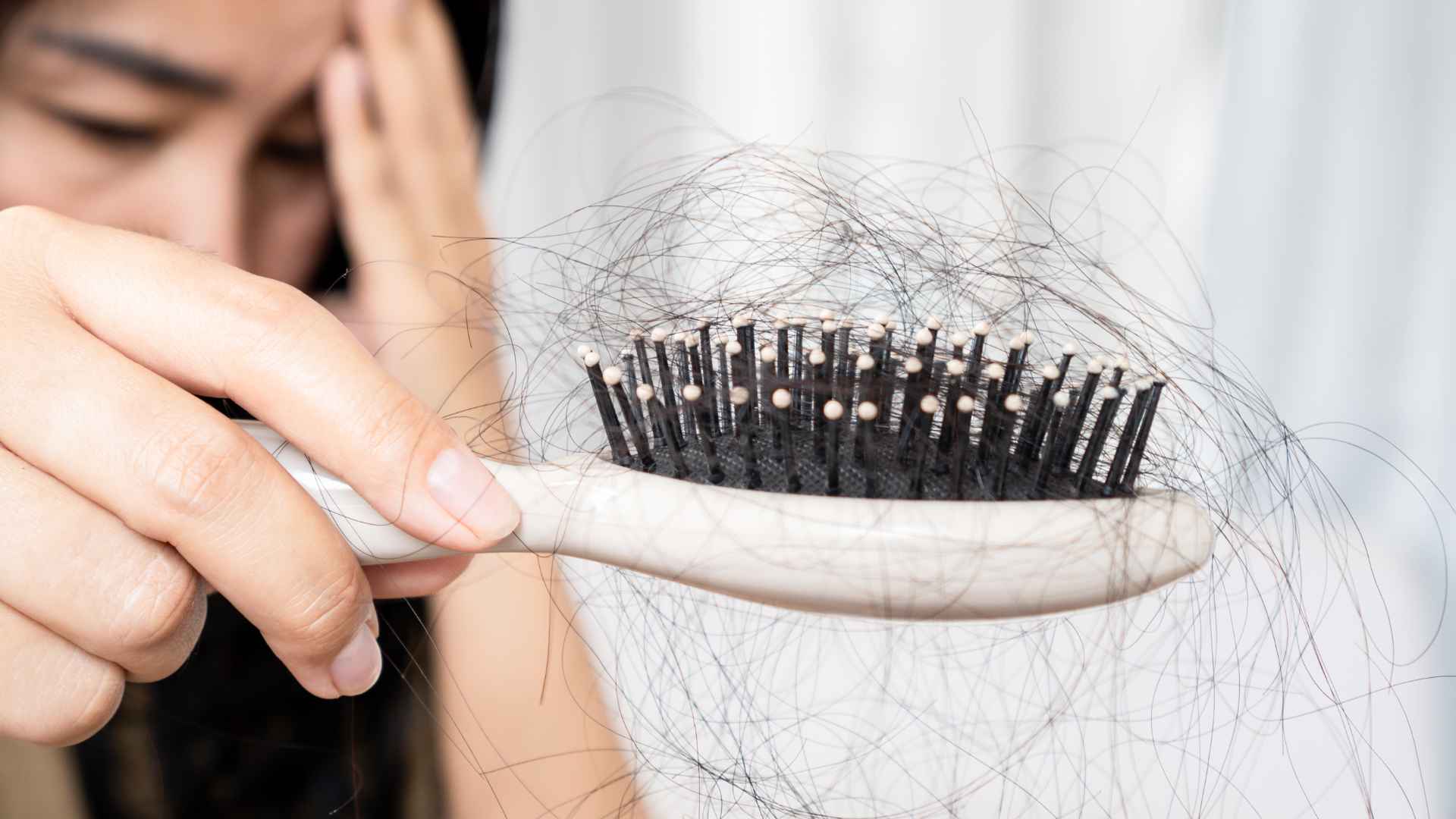Undergoing chemotherapy is a challenging and often life-altering experience for individuals fighting cancer. One of the most visible and emotionally impactful side effects of chemotherapy is hair loss. Losing hair can be a profound and deeply personal experience, affecting not only a person’s physical appearance but also their self-image and emotional well-being.
In this article, we aim to provide valuable information, support, and guidance for individuals undergoing chemotherapy and experiencing hair loss. We understand the importance of addressing the emotional and physical impact of hair loss during this challenging time. Our goal is to provide insights, practical advice, and empathy to help individuals navigate this aspect of their cancer journey.
Chemotherapy-induced hair loss can be an emotionally sensitive topic, and we want you to know that you are not alone. Our purpose is to offer information, understanding, and support to those facing this particular aspect of cancer treatment. We hope to provide insights that empower you to make informed decisions and find ways to cope with the emotional and physical effects of hair loss.
Throughout this article, we will explore various topics related to chemotherapy-induced hair loss, including the process of hair loss during treatment, ways to manage and care for the scalp and remaining hair, practical tips for finding suitable head coverings, and emotional support during this challenging time.
We understand the unique challenges that accompany hair loss during chemotherapy, and we hope that this article will serve as a valuable resource for you or your loved ones undergoing cancer treatment. Remember, you are not alone in this journey, and there are strategies and support systems available to help you navigate the impact of hair loss with resilience and grace.
Understanding Chemotherapy and Hair Loss

Chemotherapy is a treatment approach that uses powerful drugs to kill or slow down the growth of cancer cells. It is commonly used to treat various types of cancer and is often administered intravenously or orally. The purpose of chemotherapy is to destroy cancer cells throughout the body, targeting both the primary tumor and any potential metastases.
One of the well-known side effects of chemotherapy is hair loss, scientifically referred to as chemotherapy-induced alopecia. Hair loss occurs because chemotherapy drugs are designed to target rapidly dividing cells, including not only cancer cells but also normal cells in the body, such as hair follicles. As a result, hair follicles are temporarily weakened, leading to hair loss.
It’s important to note that not all chemotherapy drugs cause hair loss, and the extent of hair loss can vary depending on the specific drugs and treatment regimen. Some individuals may experience partial hair loss or thinning, while others may lose all their hair, including scalp hair, eyebrows, eyelashes, and body hair. The timing and pattern of hair loss can also vary.
While hair loss during chemotherapy can be distressing, it’s crucial to remember that it is a temporary and reversible condition. Hair typically begins to grow back after the completion of chemotherapy treatment. The regrowth process may take several weeks to months, and the hair may initially appear different in texture, color, or thickness. In most cases, the hair eventually returns to its pre-treatment condition.
It’s important to discuss the potential for hair loss with your oncologist or healthcare team before starting chemotherapy. They can provide specific information about the likelihood and extent of hair loss based on the drugs being used. Additionally, they can offer support, answer your questions, and guide you through the process of managing and coping with hair loss during chemotherapy.
Remember, while hair loss during chemotherapy can be emotionally challenging, it is a temporary side effect. There are various strategies and support systems available to help you manage this aspect of your cancer treatment journey.
Timing of Hair Loss After Starting Chemotherapy Treatment
Hair loss during chemotherapy typically begins a few weeks after starting treatment. The exact timing can vary depending on the specific chemotherapy drugs used and the individual’s response to treatment. It’s important to note that not all individuals will experience hair loss, and the extent and pattern of hair loss can also vary.
The timeline of hair loss can range from a few weeks to several months. Some individuals may experience gradual thinning, while others may notice more sudden and significant hair loss. Hair loss may occur in patches or be more diffuse, affecting the entire scalp. Other factors, such as the dosage and frequency of chemotherapy treatments, can also influence the timing and extent of hair loss.
After completing chemotherapy, the timeline for hair regrowth varies from person to person. In general, hair regrowth starts a few weeks to a few months after the completion of treatment. However, it’s important to note that regrowth can be a slow and gradual process. Initially, the new hair may appear different in texture, color, or thickness compared to the pre-treatment hair. Over time, as the hair follicles recover and enter their normal growth cycle, the hair usually returns to its previous state.
It’s important to manage expectations and be patient with the regrowth process. While it can be challenging to go through the stages of hair loss and regrowth, remember that it is a temporary phase. Surrounding yourself with support from loved ones, joining support groups, and seeking guidance from healthcare professionals specializing in cancer care can provide valuable emotional support and practical advice during this time.
If you have specific concerns about the timing of hair loss or regrowth, it is recommended to consult with your oncologist or healthcare team. They can provide more personalized information based on your treatment plan and help address any questions or concerns you may have.
Remember, the timeline of hair loss and regrowth during chemotherapy can vary, but in most cases, hair will start to regrow after treatment completion. Be patient and gentle with yourself throughout this process, as your hair will gradually return to its pre-treatment state.
Coping with Hair Loss During Chemotherapy
Hair loss during chemotherapy can have a significant emotional impact on individuals. It is normal to experience a range of emotions, including sadness, grief, anger, or a loss of self-confidence. Acknowledging and addressing these feelings is an important part of coping with hair loss.
Here are some strategies that can help:
- Seek Support: Reach out to your loved ones, friends, and family for emotional support. Share your feelings and concerns with them. Their understanding and encouragement can provide comfort during this challenging time. Consider joining support groups or online communities where you can connect with others who are going through similar experiences. Sharing your journey and listening to others can be empowering and comforting.
- Counseling Services: If you find that the emotional impact of hair loss is affecting your well-being and daily life, consider seeking professional counseling services. Mental health professionals experienced in working with individuals with cancer can provide guidance, coping strategies, and a safe space to process your emotions.
- Practical Solutions: Explore practical solutions that can help you manage the appearance-related challenges of hair loss. Scalp cooling devices, also known as cold caps, can reduce hair loss during chemotherapy by cooling the scalp and constricting blood vessels, thereby reducing the amount of chemotherapy drugs that reach the hair follicles. Wigs, hairpieces, scarves, or hats can provide options for covering the head and maintaining a sense of normalcy and confidence. Many organizations and wig suppliers specialize in providing wigs specifically designed for individuals undergoing cancer treatment.
Remember, there is no right or wrong way to cope with hair loss during chemotherapy. Each person’s journey is unique. Find what works best for you and prioritize self-care. Engage in activities that bring you joy, practice relaxation techniques, and maintain a healthy lifestyle to support overall well-being.
If you have concerns or questions about coping with hair loss, don’t hesitate to discuss them with your healthcare team. They can provide guidance, resources, and information specific to your situation and treatment plan.
Hair loss is a visible reminder of the challenges you are facing, but it doesn’t define your strength, resilience, or beauty. Your inner strength and the support you receive from others can help you navigate this aspect of your cancer journey with grace and courage. Remember, you are not alone, and there are resources and strategies available to help you cope with hair loss during chemotherapy.
5 Tips for Maintaining a Healthy Scalp and Caring for Remaining Hair During Chemotherapy

During chemotherapy, it’s important to pay attention to the health of your scalp and remaining hair. Here are some tips to help you maintain a healthy scalp and care for your hair during this time:
- Gentle Hair Care: Use gentle hair care products that are specifically formulated for sensitive or damaged hair. Look for mild, sulfate-free shampoos and conditioners that are gentle on the scalp. Avoid products that contain harsh chemicals or irritants. When washing your hair, use lukewarm water and avoid excessive rubbing or pulling.
- Be Mindful of Heat Styling: During chemotherapy, it is best to avoid heat styling tools such as curling irons, straighteners, and blow dryers. These tools can cause further damage to fragile hair. Instead, consider embracing low-maintenance hairstyles or using alternative styling techniques that don’t require heat, such as air-drying or using foam rollers.
- Protect Your Scalp: Protect your scalp from the sun and harsh weather conditions. Wear a hat, scarf, or head covering when you are outdoors, especially during peak sun hours. Opt for materials that are soft and breathable to prevent irritation. If you are using scalp cooling devices, follow the instructions provided by your healthcare team to ensure proper use and protection of your scalp.
- Moisturize Your Scalp: Keep your scalp moisturized to prevent dryness and irritation. You can use a gentle moisturizer or oil specifically designed for the scalp. Apply a small amount and gently massage it into your scalp using your fingertips. Be cautious not to apply too much, as it may make your hair look greasy.
- Consult with Your Healthcare Team: Every individual’s treatment plan and needs are unique. It is important to consult with your healthcare team for specific recommendations and guidelines regarding scalp and hair care during chemotherapy. They can provide personalized advice based on your treatment regimen, specific drugs used, and any potential side effects you may experience.
Remember, taking care of your scalp and remaining hair during chemotherapy can help maintain their health and minimize discomfort. However, it’s essential to prioritize your overall well-being and follow the guidance provided by your healthcare team.
If you have specific concerns or questions about scalp and hair care, don’t hesitate to reach out to your healthcare team. They are there to provide you with the necessary support and guidance throughout your treatment journey.
Hair Regrowth After Chemotherapy
Hair regrowth after chemotherapy is a gradual process that can vary among individuals. Several factors can influence the rate and pattern of regrowth. Here are some important points to consider:
- Individual Variations: The timeline for hair regrowth can vary from person to person. Factors such as the specific chemotherapy drugs used, dosage, treatment duration, and individual response to treatment can all play a role. Some individuals may experience hair regrowth within a few weeks, while for others, it may take several months or even up to a year.
- Age and Overall Health: Age and overall health can also impact the rate of hair regrowth. Younger individuals often experience faster regrowth, as their hair follicles are more active. Individuals in good overall health may also have a higher likelihood of faster regrowth.
- Genetics: Genetic factors can influence the pattern and quality of regrowth. The characteristics of your hair before chemotherapy, such as texture, color, and thickness, may be similar or slightly different during the regrowth phase.
- Hair Texture and Color: It’s important to note that regrown hair may initially appear different in texture, color, or thickness compared to your pre-treatment hair. It might be finer, curlier, or have a different shade. However, with time, as the hair follicles return to their normal functioning, the regrown hair usually becomes more similar to your pre-treatment hair.
It’s important to remember that hair regrowth is a positive sign of your body recovering from chemotherapy. While the process can be slow and may require patience, most individuals will see noticeable regrowth within a few months to a year after completing chemotherapy.
During the regrowth phase, it’s essential to continue taking care of your scalp and hair. Be gentle with your hair, avoid excessive styling or chemical treatments, and follow a healthy hair care routine. Regular trims can help maintain the appearance and health of your regrown hair.
If you have concerns or questions about the regrowth process, it is recommended to discuss them with your healthcare team. They can provide more specific information based on your treatment plan and offer reassurance and support throughout the regrowth journey.
Remember, hair regrowth is a positive and gradual process that signifies your body’s healing and recovery. Be patient and kind to yourself as you embrace the regrowth phase, and know that your hair will likely return to its pre-treatment state in due course.
Watch Avoiding hair loss during Chemotherapy | Video
Top 5 FAQs and answers related to when to expect hair loss after chemotherapy treatment
When does hair loss occur during chemotherapy?
Hair loss usually begins a few weeks after starting chemotherapy. The exact timing can vary depending on the specific drugs used and the individual’s response to treatment. Not all chemotherapy drugs cause hair loss, and the extent of hair loss can also vary.
Will all of my hair fall out during chemotherapy?
Hair loss during chemotherapy can vary from partial hair thinning to complete loss of scalp hair, eyebrows, eyelashes, and body hair. The extent of hair loss depends on the specific chemotherapy drugs used and the individual’s response to treatment. Some individuals may experience more significant hair loss than others.
Will my hair grow back after chemotherapy?
Yes, in most cases, hair will begin to grow back after the completion of chemotherapy treatment. The timeline for regrowth can vary, but it typically starts within a few weeks to months. Initially, the regrown hair may appear different in texture, color, or thickness compared to your pre-treatment hair. Over time, the hair usually returns to its previous state.
How can I cope with hair loss during chemotherapy?
Coping with hair loss during chemotherapy can be challenging. Seek support from loved ones, join support groups, and consider counseling services to help address the emotional impact. Practical solutions such as scalp cooling devices, wigs, scarves, or hats can help manage the appearance-related challenges. It’s important to remember that hair loss is temporary, and there are strategies and support systems available to help you navigate this aspect of your cancer journey.
Can I do anything to prevent or minimize hair loss during chemotherapy?
Currently, there is no guaranteed method to prevent or eliminate hair loss during chemotherapy. However, scalp cooling devices, such as cold caps, have been used to reduce hair loss by cooling the scalp and constricting blood vessels. It’s important to discuss options with your healthcare team before starting treatment to determine if scalp cooling is suitable for you.
Conclusion

Hair loss during chemotherapy is a common side effect that can have a significant emotional and physical impact on individuals. Here are the key points discussed in this article:
- Hair loss during chemotherapy is a temporary side effect. Hair usually begins to regrow within a few weeks to months after completing treatment. The regrowth process may vary in timeline and appearance.
- The extent and pattern of hair loss can vary depending on the specific chemotherapy drugs used, treatment regimen, and individual response. Not all chemotherapy drugs cause hair loss, and the degree of hair loss can differ among individuals.
- Coping with hair loss during chemotherapy involves seeking support from healthcare professionals, loved ones, and support groups. Emotional support, counseling services, and connecting with others who have experienced or are going through similar situations can provide valuable comfort and guidance.
- Practical solutions such as scalp cooling devices, wigs, scarves, or hats can help individuals manage the appearance-related challenges of hair loss. It’s important to explore options and find what works best for you.
- Remember that hair loss during chemotherapy does not define your strength or beauty. It is a temporary phase on your cancer treatment journey. Seeking support, being patient with the regrowth process, and prioritizing self-care are essential in maintaining overall well-being.
If you are currently undergoing chemotherapy and experiencing hair loss, remember that you are not alone. Reach out to your healthcare team for guidance and support. Lean on your loved ones and consider joining support groups where you can share experiences and find solace in the understanding of others.
Hair loss during chemotherapy can be emotionally challenging, but it is a temporary phase. Your strength, resilience, and beauty go beyond your physical appearance. Focus on your overall well-being and trust in the regrowth process. Stay connected with your support network, and don’t hesitate to seek professional help when needed.
Throughout your journey, know that there are resources available to help you navigate the impact of hair loss and find comfort in your unique beauty and inner strength.
Please share this When to Expect Hair Loss After Chemotherapy Treatment? Guide with your friends and do a comment below about your feedback.
We will meet you on next article.
Until you can read, Does Creatine Cause Hair Loss? Debunking the Myths Guide
